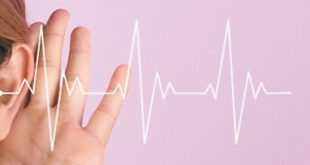By Dr. Melissa (Mel) Irvine, DNP
Clinical Sexologist – Specializes in Sexual Medicine and Beauty


Hormone replacement therapy involves a type of medication that contains hormones. It can include female hormones, specifically estrogen, or male hormones, such as testosterone. Some types of hormone therapy include a combination of estrogen and progesterone. Another hormone used in hormone replacement therapy is human Chorionic Gonadotropin (hCG), which is a hormone the female body produces during pregnancy.
As expected, different hormones will be used for various reasons.
Some people naturally have lower levels of hormones, while others experience a shift in hormones due to age or lifestyle events, such as menopause. Other individuals may undergo surgery that then affects their hormone production. No matter the cause of the unbalanced hormones, the side effects can be significant such as painful symptoms, increased disease risk, or infertility. Hormone replacement therapy help return the amount of hormones in the body to a normal level, correcting these issues.
What Should You Expect?
How hormone replacement therapy is completed will depend on the type of hormone replacement and the method chosen. There are many available forms of hormone replacement therapy, including a pill, injection, gel, patch, vaginal cream, or slow-releasing suppository placed within the vagina.
Estrogen Therapy
There are two main types of estrogen therapy. The best choice for you often depends on what symptoms you are experiencing.
Systemic Hormone Therapy
This type of hormone replacement therapy often contains a higher dose of estrogen. It can come in the form of a pill, ring, skin patch, cream, gel, or spray. This type of therapy is absorbed throughout the entire body, so it can be used to treat any of the common menopausal symptoms.
Low-Dose Vaginal Products
As the name suggests, these products contain a lower dose than systemic hormone therapy products. That is because these products, which often come in the form of a tablet, cream, or ring, are often used to only treat vaginal and urinary symptoms of menopause.
Unless you have had your uterus removed, estrogen therapy typically contains a combination of estrogen and progesterone/progestin. This is because estrogen alone can stimulate the growth of the uterus lining, increasing the risk of endometrial cancer. Progesterone balances estrogen and reduces that risk.
Testosterone Therapy
Testosterone therapy is typically completed through an injection or gel.
hCG Therapy
HCG therapy is commonly administered through an injection. The shot is injected under the skin or into the muscle.
Treatment Frequency
There are also different treatment timeframes. For example, someone who experiences painful menopause symptoms may only receive treatment once a month. In most cases, the goal is to receive the benefit needed while limiting the amount of hormone utilized.
Who Benefits from Hormone Replacement Therapy?
Menopausal Women
Hormone replacement therapy helps treat the symptoms of menopause, such as hot flashes and vaginal discomfort.
Hormone replacement therapy may also help those who are going through early menopause. This may happen because of a surgical removal of the ovaries before the age of 45, or if you stopped having periods before the age of 45. This may also occur if you lose the normal function of your ovaries before the age of 40. When these situations occur, your body is not receiving as much estrogen as women who go through a typical period of menopause.
The above situations may also increase your risk of certain health conditions, including heart disease, osteoporosis, dementia, stroke, and mood changes. Hormone replacement therapy can help combat the increased risk of these conditions.
Post-Menopausal Women
After menopause, many women may be at an increased risk of osteoporosis. To prevent bone breaks and fractures, hormone replacement therapy may be recommended to strengthen the bones.
Men With Hypogonadism
Hypogonadism is a medical condition in which the testicles do not produce enough testosterone. Testosterone therapy can help return testosterone levels to normal for those with hypogonadism, which primarily helps to increase libido.
Fertility Issues
Both men and women experiencing fertility issues can receive hCG therapy to increase their likelihood of getting pregnant. For women, hCG encourages egg production, while hCG increases sperm count for men.
Testosterone therapy often comes with a side effect of fertility issues. Because of this, men who are undergoing testosterone therapy who also want to become a father can cycle through hCG and testosterone therapy to preserve their sperm production.
Young Boys with Testicles That Have Not Dropped
In some cases, young boys may have testicles that have not dropped into the scrotum as they usually should. In most cases, this is because of a pituitary gland disorder. HCG injections can be used in this situation.
About Dr. Melissa (Mel) Irvine, DNP
Dr. Mel has been in the medical field for over 15 years and is a board-certified Nurse Practitioner. She received her Bachelor of Science in Nursing at Brenau Women’s College, in Gainesville, Georgia. She received her Master of Science in Nursing at The University of Alabama at Birmingham and her doctorate degree at Florida Gulf Coast University. Dr. Mel is passionate about empowering and educating women so they can be their own advocates and make the best-informed decisions regarding treatment options and quality of life. As a Sexual Medicine provider, she takes pride in providing high quality personalized care to meet the sexual health needs of both men and women. Her interest in Sexual Medicine took her to San Diego where she completed a preceptorship with the leading Sexual Medicine provider in the U.S., Dr. Irwin Goldstein. She is an avid learner and regularly attends educational trainings and conferences to stay up to date on the latest and most innovative treatment options available.
Dr. Mel Ervine
9250 Corkscrew Rd. STE 5, Estero, FL 33982
239-351-5663
info@drmelirvine.com | drmelirvine.com
 Southwest Florida's Health and Wellness Magazine Health and Wellness Articles
Southwest Florida's Health and Wellness Magazine Health and Wellness Articles

